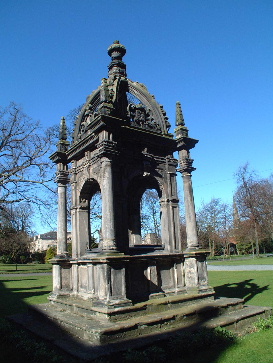 "And
the Setons were ever a great house, zealous of honour, loyal unto
death." The interests of dedicated professional
genealogists and the enthusiasm of amateur family historians
should not be denigrated merely because they have been known
occasionally to lead to eccentric passions and careless
misjudgements. The pursuit of a specific family's past can
contribute much to the general understanding of life in other
centuries, and ought to be encouraged as early as possible.
"And
the Setons were ever a great house, zealous of honour, loyal unto
death." The interests of dedicated professional
genealogists and the enthusiasm of amateur family historians
should not be denigrated merely because they have been known
occasionally to lead to eccentric passions and careless
misjudgements. The pursuit of a specific family's past can
contribute much to the general understanding of life in other
centuries, and ought to be encouraged as early as possible.
Obviously, amid the contemporary deconstruction
of the traditional family unit it is necessary to introduce the
subject to children with a measure of sensitivity, and at times it
may rightly be considered improper, but at some stage all humans
have to recognise they are the product of their forebears, even if
these forebears must remain individually anonymous.
George, 7th Lord Seton, concerned for the memory
of his family's origins, asked his nephew, Sir Richard Maitland of
Lethington, to "collect, gadder and set furth the historie and
cronicle of his hous and surname, quhilk has been verray ancient
and honorable." A copy of Lethington's manuscript, annotated by
George Seton, 4th Earl of Winton, includes a memorable preamble.
It is divided here into two parts, the first of which is the more
famous. The second is a pedagogic counsel that reads pompously to
twentieth-century eyes, yet it is not without a na´ve charm, and
reflects much of what some great houses truly believed.
The Seton Representatives
